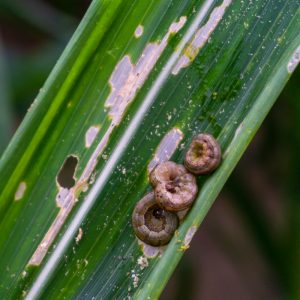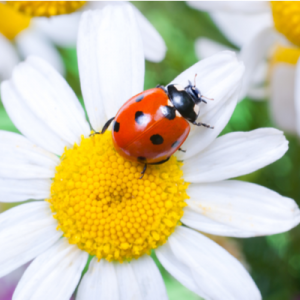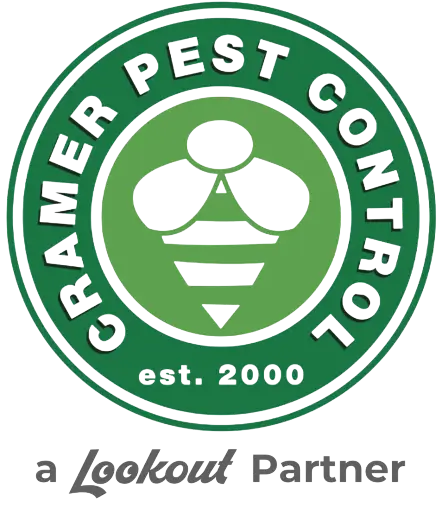Of all the pests that can damage our lawns in the fall, the fall armyworm takes the prize. These tiny caterpillars are a chronic pest in North and South Carolina and the Southeastern United States. Over sixty types of plants are favored by armyworms which they can skeletonize in a day. These include all types of grass, corn, soybeans, cotton, alfalfa, and most vegetables.
The Life Cycle of an Armyworm
Fall armyworms emerge in the late summer or early fall and can be found in every state east of the Mississippi and recently there has been an abundance of them in the Charlotte area. Armyworm moths lay their eggs on the underside of leaves, sides of rocks, under porches, inside cinder blocks, and other flat surfaces. It takes eggs 5-10 days to hatch and start feeding. After a few weeks of devouring your plants, they will retreat underground where they will pupate into full-grown adult moths. There can be several generations of armyworms in a single year and further south, they are active year-round. Life cycles tend to be around 30-90 days from egg to adult. Adult moths can live up to two weeks and in that time can lay as many as 1000-1500 eggs.
Damage Caused By Armyworms
The amount of damage that armyworms can do to your lawn depends on the type of grass you have. In the spring, the armyworm larvae stay close to their web-like homes and feed on low-growing turf. As they begin to move out of their home in the late summer and early fall, they start to climb up the grass blades and other plants in search of food. As we mentioned, armyworms are not picky eaters. They enjoy all sorts of grass types including Bermuda and zoysia grass. They will also devour crops such as peanuts, corn, lettuce, cabbage, and soybeans. This makes the fall armyworm a problem for farmers. Areas damaged by fall armyworms may look burned or brown. This is the result of the armyworm feeding on the plant and causing it to dehydrate.
Their Behavior
Fall armyworms are usually the most active early in the morning, late in the afternoon, or in the early evening. Armyworms move so fast that you usually notice damage overnight. A large number of caterpillars can quickly defoliate an area and move on as fast as they appear.
Managing Fall Armyworms In Charlotte
Managing fall armyworms is not easy considering their numbers and how quickly they feed and move on. Scouting your yard and pastures can help identify and locate armyworm infections before they get out of control. The best way to detect fall armyworms is to use an insect net to sweep the grass. A sweep net picks up larvae that are too small to see normally. Sweep the grass in the early morning or late afternoon. After you have identified armyworms in your yard the next thing is to count how many are in a square foot. If you find more than two to three caterpillars per square foot, it is probably time to apply an insecticide or better yet, call a professional.
Beneficial Insects

If you are looking for a more environmentally sound way of eradicating fall armyworms then look no further than nature’s helpers. There are several beneficial insects that will help you win your war on armyworms.
- Parasitic wasps: These feed on garden pests that love to feed on our plants.
- Ladybugs: Ladybugs can be purchased in bulk and released in your yard. Ladybugs are great at seeking out and eating armyworm eggs.
- Lacewings: Also, feed on the eggs of armyworms.
Enlist Your Feathered Friends
Birds are a caterpillar’s worst nightmare. With thousands of armyworms marching through your grass it’s like a regular smorgasbord for wild birds. You can attract more birds to your yard by putting up birdhouses, roosting boxes, and bird feeders with a variety of seeds. Birds have a keen sense of eyesight that will allow them to spot armyworms in your grass and go after them.
Call The Pest Control Experts at Cramer
If fall pests are driving you up the wall, call the professionals at Cramer Pest Control. We have years of experience dealing with pests of all shapes and sizes throughout the Charlotte area and beyond. If you want to protect your home from fall pests this year, then ask about our residential pest control program.
Own a business? With our Commercial Pest Control program, we can save your small business from being overrun with pests.
Don’t wait for the problem to get out of control, call us now at (704) 763-0204 or (803) 802-7540 to get started. You can also contact us here for more information. Don’t forget to follow us on Facebook for the latest deals and check our blog for monthly pest control tips and tricks.
The Dangers of the Fall Armyworm In North and South Carolina in North Carolina and South Carolina
Protecting North Carolina and South Carolina
